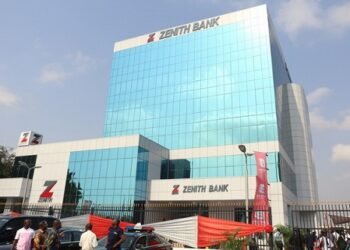Prof. John Gartchie Gatsi, the Dean of the University of Cape Coast Business School, has emphasized the need for the Banks and Specialised Deposit-Taking Institutions Act, 2016 (Act 930) to be reformed to accommodate ethical banking and achieve financial inclusion.
According to the Dean, the issue about ethical finance should be looked at from financial inclusion perspective and not religious, though it was structured on Islamic law.
Prof. Gatsi made this known when speaking at the seminar on ethical finance on Islamic finance organised by Islamic Finance Research institute Ghana at the University of Cape Coast for Students on the topic: regulatory reforms for ethical finance. Prof. Gatsi explained that world Bank and IMF have given recognition and acceptance to ethical finance in many countries, including USA, UK, France, Germany, Nigeria., Uganda, among others.
Prof. Gatsi noted that the slow pace of amending the law to accommodate Islamic finance and banking denies the country of the immense benefits of inclusion and opportunities for choice of financial products.
Prof. Gatsi indicated that Act 930 was largely enacted for conventional banks and as such, there is the need to create legal flexibility to accommodate governance structures conducive for Islamic banking.
The Dean of the University of Cape Coast Business School said, among other things, that there are infrastructural support benefits to be derived by the country. He added that Nigeria over the past few years has leveraged on Islamic bonds to construct roads, and federal projects.
Prof. Gatsi explained that section 18(1) seems to grant non-interest banking services but the restrictions and prohibited transactions in section 19 relating to direct participation in agriculture, housing and industrial development would not be in consonance with partnerships, joint ventures and project finance arrangements in Islamic finance.
The economist opined that access to Islamic financial products, services and instruments have no regard to whether an applicant is a Muslim or not.
“There is no fear about promotion of Islamic religion because it will not arise, rather entrepreneurs and businesses will have alternatives to finance their businesses in socially acceptable and sustainable manner.”
Prof. John Gartchie Gatsi
Prof. Gatsi, moreover, explained that regulatory reforms are only needed in licensing Islamic banks; individuals could enter into various joint ventures and partnerships fostering interest free loans and transactions among themselves. “Regulations and the law come in when we are talking about Islamic banks for every financial institution which must be licensed and regulated,” he said.
The Dean averred that the corporate governance design of the conventional banks in section 56 of Act 930 fell short of the two tier corporate governance structures of Islamic banks needed to vet Islamic financial products and instruments.
Broad-Based Engagement
Prof Gatsi, meanwhile, called for broad-based engagement to include leaders of commercial banks, Muslim clerics, Christian leaders, academics and parliament for better appreciation of the principles.
Just recently, a former Chief Executive Officer of Stanbic Bank, Naa Alhassan Andani, appealed to stakeholders in the Muslim communities to provide financial support for the establishment of an Islamic Bank to address the financial needs of all Muslims.
According to Naa Alhassan Andani, the call for the establishment of the bank has become necessary as a lot of Muslim entrepreneurs and individuals continued to undergo financial challenges which were hindering their standard of living.
Mr Shaibu Ali, the Director General of IFRIG, also noted that there has been progress towards the establishment of the Islamic Bank, stressing an application for license had been submitted to the Bank of Ghana.
Mr Shaibu Ali added that staff of the Central Bank had also undergone training on Islamic banking as well as some Imams to afford them the opportunity to understand and appreciate the operations of Islamic banking.
READ ALSO: Ghana Is Now Bankrupt And The Economy Has Finally Collapsed– NDC







